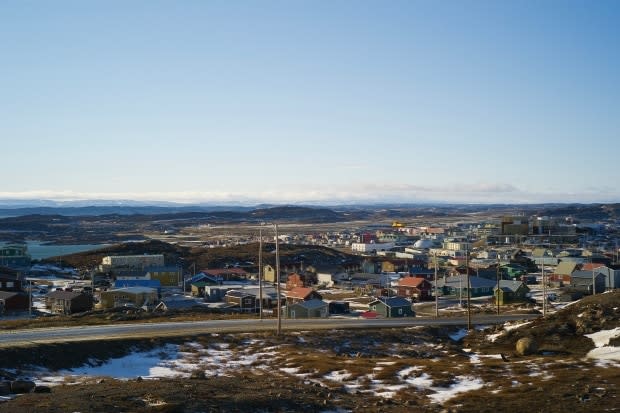Nunavut and health: A federal election explainer
Health care is mainly a territorial responsibility, but nearly all the funding for health care programming in Nunavut comes from the federal government.
The federal government can also set health care priorities, like it did when it formed a task force with Inuit Tapiriit Kanatami (ITK) — the organization that represents Inuit in Canada — to eliminate tuberculosis by 2030.
As part of the plan to eliminate tuberculosis in Inuit Nunangat, in the 2018 federal budget it allocated $27.5 million to ITK, instead of directly to the service provider, in this case the Nunavut Health Department.
Aluki Kotierk is the president of Nunavut Tunngavik Inc., which represents Inuit in Nunavut. She says this method of giving money to Inuit organizations is a step in the right direction, but comes with its own challenges.
"Part of it is learning to do it and pushing the federal government to have Inuit specific budget items in the budget address," Kotierk said.
But Nunavut's premier Joe Savikataaq says 2030 is an ambitious goal without more money. He says whatever party is elected should invest more in health care for Nunavummiut, because he says the territory is spending all it has.
"If we want to spend more money on health then we will build less houses. If we have less houses, if we have less houses there is more overcrowding which could contribute to more health issues," Savikataaq said.
Mental health treatment
In an all-candidates forum on Thursday night, the three candidates on stage — Conservative candidate Leona Aglukkaq, Liberal candidate Megan Pizzo-Lyall and NDP candidate Mumilaaq Qaqqaq — agreed that mental health services are inadequate in Nunavut.
All three candidates say services should be culturally appropriate and available in Inuktitut.

"I have met with a number of people that work in the health sector and that deal with this issue on a regular basis, and one of the recommendations coming from the discussions they've had in preparation for my campaign was to put more resources in the area of training Inuit in the field of mental health," Aglukkaq said
Qaqqaq echoed that idea in the forum, saying basic human rights like housing, food security, and access to education need to be in place to mitigate the ongoing rate of suicide in Nunavut.
"There are many things a part of our NDP platform that allow me to show Nunavummiut that they are cared for and valued," Qaqqaq said.
Liberal candidate Megan Pizzo-Lyall spoke about the importance of celebrating life and the need for specific addictions treatment.
The Liberal government pledged to fund an addictions and trauma treatment centre in Iqaluit, just before the election was called.
"We're all impacted in one way or another being such a small territory. And with the Liberal government, we will invest $11 billion over 10 years to increase the access to mental health care and addictions across the nation," Pizzo-Lyall said.
That $11 billion however is only a fraction of Canada's health care spending, which totalled $253.5 billion in 2018.
In an pre-recorded interview Douglas Roy, the Green Party candidate, who could not attend the debate, also spoke about suicide.
"One suicide is not a ripple. It's like a tidal wave…" Roy said. "It's just creates terrible problems for everybody."
Aglukkaq expanded the scope to say mental health is affected by many quality of life factors, so she would push for more housing in the territory.

All three candidates supported the idea of Nutrition North, and all said it needed reformed to be more transparent and culturally relevant.
Aglukkaq said Nutrition North is better than the Food Mail program it replaced. Nutrition North was brought in when Stephen Harper was prime minister.
Pizzo-Lyall said the Liberals have started working on rolling out the Harvester support program.

